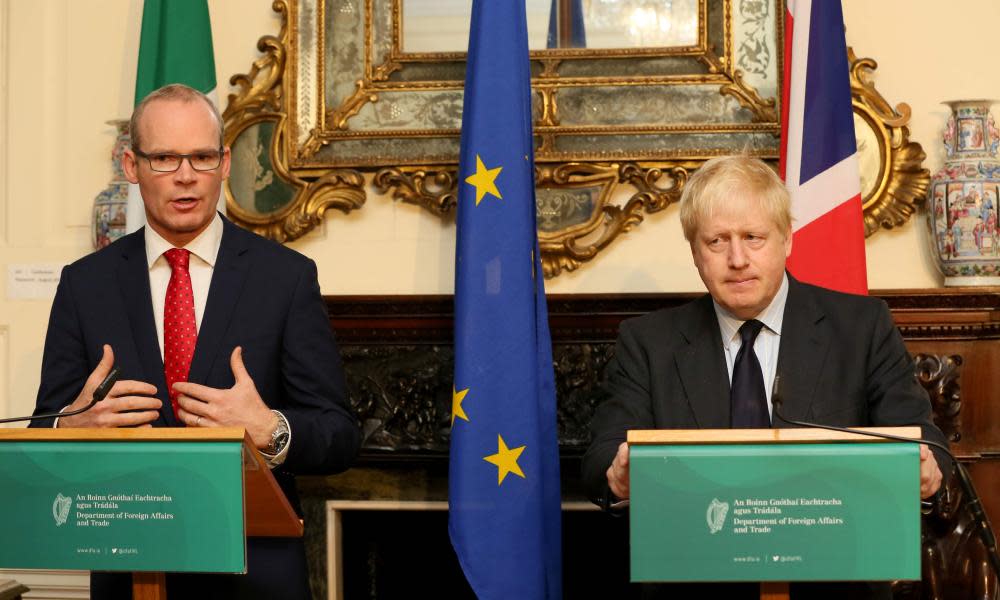Brexit deal includes two-way customs checks, insists Ireland

Simon Coveney, Ireland’s foreign minister, has challenged Boris Johnson’s claim that under his Brexit deal there would be no checks or controls on goods moving between Northern Ireland and Britain.
Coveney insisted that under the terms of the withdrawal agreement the prime minister negotiated with the European Union there would be inspections on goods moving in both directions.
“It was very clear when the deal was done,” he said in Brussels on Monday. “The EU has made it clear they want to minimise the impact on goods coming from Great Britain to Northern Ireland, but at the same time goods coming from Great Britain to Northern Ireland will need to have some checks to ensure that the EU knows what is potentially coming into their market through Northern Ireland.”
The comments contradicted Johnson’s claims, repeated last Sunday, that there would be no checks on goods moving from Northern Ireland to Great Britain.
Coveney’s tacit rebuke followed sharper censure on Monday from Arlene Foster, the Democratic Unionist party leader, who accused the prime minister of misrepresenting the Brexit deal and breaking his word to Northern Ireland.
Speaking to RTE, the Irish foreign minister said negotiators on both sides spent a lot of time nailing down details to leave no ambiguity.
“Goods going the other way from Northern Ireland into Great Britain will have far less requirement for checks at all. In fact, it will probably be limited to an export declaration, because, of course, that is a matter internally for the UK.
“So, there was always a distinction between goods coming from Great Britain into Northern Ireland versus goods going from Northern Ireland into Great Britain and we spent many hours discussing and negotiating that, and I think explaining it too.”
Related: Arlene Foster accuses PM of breaking his word over Brexit deal
Coveney added that clinching a trade deal with the UK by the end of 2020 was a “tall order”.
Johnson, who was due on Wednesday to campaign in the Midlands and north-west England, has been accused of lying about the Brexit deal and the likelihood of securing a trade deal within a year.
A document leaked last week, written by officials in the government’s Brexit department, warned that Johnson’s stated goal of implementing his deal by the end of 2020 presented a major challenge because of the need to create new protocols and systems for business in Northern Ireland.
The document, obtained by the Financial Times, claimed that 98% of export businesses were “likely to struggle to bear the cost” of the extra paperwork, fuelling concerns of increased prices for consumers.
The government dismissed a similar document leaked to the Labour party on Friday as instant analysis done when Johnson brought home his Brexit deal in October.

 Yahoo News
Yahoo News 
